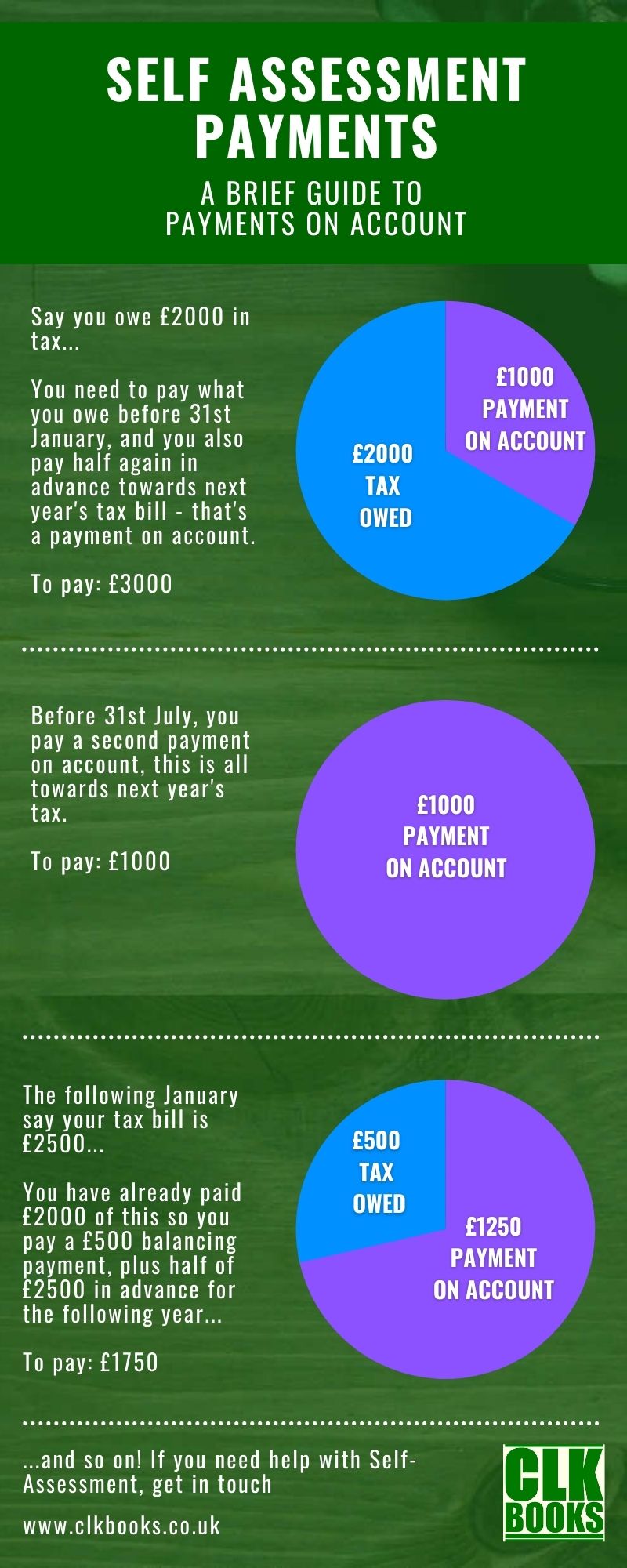
If you owe over £1,000 in tax and Class 4 national insurance contributions*, you will also be charged a ‘payment on account’ - a part payment toward next year’s tax bill. It’s not the easiest thing to understand so hopefully this simple guide will help to explain it by an example.
Say you owe £2000 in tax for 2023-24. You need to pay what you owe before 31st January, and you also pay half again in advance towards next year's tax bill - that's a payment on account.
Your tax bill due by 31st January 2025 is:
- Tax owed £2000 +
- First payment on account (half of the tax owed in 20-21) £1,000 =
- Total: £3,000
The £2,000 is used to clear the tax you owe and the £1,000 sits in your account towards your tax the following year.
Before 31st July, you pay a second payment on account, this is all towards next year's tax.
Your tax bill due by 31st July 2025 is:
- Second Payment on account (half of the tax owed in 20-21) =
- Total: £1,000
You now have £1,000 from the first payment on account and another £1,000 from the second payment on account, so a total of £2,000 in your account towards your tax the following year.
Now say your tax bill for the following year (21-22) is £2500. You have already paid £2000 of this by payment on account, so you pay a £500 balancing payment to clear the tax you owe. As you owed more than £1,000 in total for the year you must also pay half of the £2500 in advance for the following year.
Your tax bill due by 31st January 2023 is:
- Tax owed £2500 -
- Payments on account already made £2,000 =
- Balancing Payment: £500 +
- First payment on account (half of the tax owed in 21-22) £1,250 =
- Total: £1,750
If you expect your profit will be reduced in the following year, you can opt to reduce your payment on account. If you have overpaid payment on account, HMRC will send you a refund as soon as your Self Assessment Tax Return is processed. It’s a good reason to complete your tax return early.
* If you have already paid more than 80% of all the tax you owe, e.g. through PAYE employment or tax deductions on saving interest, you don’t have to make payments on account.
How to pay: Pay online via your Governemnt Gateway account. Note your payment needs to hit HMRCs account by the 31st, which can take up to 5 working days.